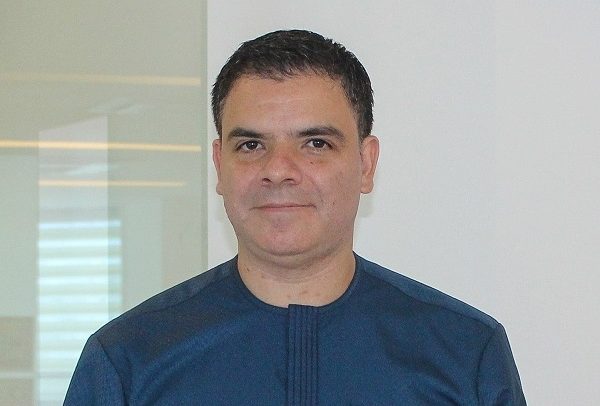
By Eric Osiakwan
Since producers of the annual Angel Fair Africa (AFA) announced the hosting of the 11th Angel Fair Africa (aka AFA@11) in Nairobi, Kenya on 13th June 2024[1], the country has been subjected to aggressive anti-tax demonstrations, that has called into question our resolve on Kenya[2].
On 25th June, the first demonstration was about the passing of the Finance Bill[3], which I witnessed firsthand because I was in the central business district (CBD) that morning with one of our portfolio company CEOs for a business meeting with a client in the morning – we managed to leave the CBD before it got messy.
President Ruto responded to the demonstration by refusing to sign the punitive tax bill into law, after it ignited widespread lawlessness across the country, culminating in the young agitators setting part of the Parliament building on fire[4].
Since then, there has been weekly protests leading to the dissolution of the country’s cabinet and now a call for President Ruto to step down[5]. On 2nd July 2024, as the demonstrations continued unabated, we launched the Chanzo Onespace Startup and Scaleup Accelerator (COSSA), ahead of AFA@11,[6] – against popular advice to change course and choose a different African host city. So why did we stick to our guns?
I have seen this movie before in Eastern Africa’s largest economy. In December 2007, less than a week before Kenya entered the new year, post-election violence erupted across the country after incumbent President Mwai Kibaki was certified as winner of the 2007 presidential election[7].
As it were, the unity government that former President Kibaki presided over delivered for the people of Kenya, with respect to economic growth, but his coming into office was acrimonious[8]. Like the current situation, many thought that the country was on the brink of civil unrest and nothing good could come out of such a situation. But the unity government of President Kibaki crafted Kenya’s vision 2030 and led the way in executing it[9].
Before that, I was invited by Prof. Bitange Ndemo, the then Permanent Secretary at the Ministry of Information Communication Technology (ICT) to join the founding members of The East Africa Submarine System (TEAMS) – a subsea fiber cable to connect Kenya to the Fujairah in the UAE[10]. At that time, East Africa was the only part of the world that had no subsea cable, so all internet connectivity was through satellite.
Back then satellite connectivity had high latency so could not run certain applications and it was very expensive. Prof. Ndemo and his team had envisioned a subsea cable that would connect Kenya to the global cable system. He then chanced on the Open Access Model that we had develop for the World Bank on building backbone infrastructure in Sub Saharan Africa[11].
It was the kind of framework he wanted to use for the TEAMS cable, so I joined the founding team to plan and execute the cable from August 2007. As luck would have it, the election of that month was disputed and protracted – resulting in the skirmishes that ensued in late December 2007.
But amidst that, we were head down executing on the TEAMS cable so whiles the country was “burning down” we were busy connecting it to the rest of the world. I remember Prof, Ndemo admonishing us that if we did not accomplish the building of the cable then, it would never happen otherwise. He was right.
This brought to mind, Rahm Emanuel’s famous quote “You never want a serious crisis to go to waste. And what I mean by that is an opportunity to do things that you think you could not do before.” That quote resonated in my mind when I landed back in Nairobi from Kampala on 30th June 2024 to messages suggesting that the demonstrations of July 2nd would result in a crisis so we should consider postponing our launch. I consulted with my partner, Ian Kabiru, CEO of Onespace and we decided if there was going to be a crisis then we should not waste it.
Our resolve was clear, so we went ahead and launched Africa’s first scaleup (not startup) accelerator on 2nd July 2024 with the mission to build “African tech multi-national corporations” out of the Two Rivers International Finance and Innovation Centre (TRIFIC)[12]. In the next ten years, we are going to systematically build innovative African tech franchises into multi-national corporations by providing them with the Capital they need to grow, build their Capacity to operate in multiple markets and connect them to the business Community in those countries, from Kenya – the silicon savannah of Africa.
We reckon that for these scaleups to evolve into multi-country operations, they need a combination of Capital, Capacity and Community as a bundled service and that is what we are going to deliver through the COSSA program. The first cohort of companies going through the program are, SaveApp, CheckUPS COVA, AtLarge Innovations – all of them are innovative Kenyan companies that are looking to launch into new markets.
SaveApp’s novel technology, Ukonga, provides a convenient, efficient, secure ‘digital piggy bank’ that fosters financial inclusion and health for myriad underbanked communities in the African continent. By leveraging on the rapidly growing broadband access in Africa – which doubled between 2015 and 2022 and currently stands at more than 4 out of 10 in Uganda, 70% in Ghana and over 90% in Morocco – Konga enables its users to passively save for their future through its proprietary ‘spend and save’ model. A model that not only encourages users – irrespective of their income band, geography or gender – to save but gives them the opportunity to access responsible credit based on their savings, awakening the untapped economic and financial potential of these communities.
CheckUps COVA believes that everyone deserves access to quality healthcare without worrying about the financial burden. They provide microloans for medical bills by creating inclusive financing options through partnership with banks and microfinance institutions. By offering health benefits and encouraging saving via micropayments, they help loanees to reduce loan defaults, ensure better compliance with treatment and unlock more benefits for their customers, their families and loved ones, when they need them.
At-Large Innovations is building the tools to enable Africa’s small and medium-sized business owners control important daily functions remotely, beginning with what we deem the most critical, expenditure. Their flagship spend management solution is offered to users through partnerships with banks and mobile money providers. It enables the digitalization of petty cash, payroll and account payables, and delivers huge benefits in fraud prevention, team collaboration, mobility, transparency and control.
The first COSSA program cohort would pitch at AFA@11 at TRIFIC from 7th to 8th November 2024 and when that happens and they subsequently grow into African tech multinational corporations, Kenya would have utilized the crisis of July 2nd to its advantage.
[1] https://thebftonline.com/2024/06/13/11th-angel-fair-africa-returns-to-silicon-savannah/
[2] https://www.nbcnews.com/now/video/kenya-protests-continue-as-demonstrators-call-for-president-to-step-down-214198341683
[3] https://www.csis.org/analysis/taking-charge-gen-z-leads-historic-protests-kenya
[4] https://www.bbc.com/news/articles/cg3jvggnlqxo
[5] https://edition.cnn.com/2024/07/23/africa/kenya-protesters-to-occupy-main-airport-intl/index.html?utm_medium=social&utm_source=whatsappCNN&utm_content=2024-07-23T11:40:15
[6] https://www.africa.com/trific-sez-onespace-and-chanzo-capital-launch-cossa/
[7] https://www.hrw.org/news/2017/08/27/kenya-post-election-killings-abuse
[8]https://successfulsocieties.princeton.edu/sites/g/files/toruqf5601/files/LS_Kenya_Powersharing_FINAL.pdf
[9] https://en.wikipedia.org/wiki/Kenya_Vision_2030
[11] https://documents.worldbank.org/pt/publication/documents-reports/documentdetail/154331468005135945/open-access-models-options-for-improving-backbone-access-in-developing-countries-with-a-focus-on-sub-saharan-africa
The post Kenya never wastes a crisis appeared first on The Business & Financial Times.
Read Full Story















Facebook
Twitter
Pinterest
Instagram
Google+
YouTube
LinkedIn
RSS